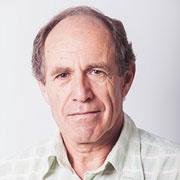-
Nanotribology
The focus is on a molecular level description of processes occurring between interacting surfaces in relative motion, which is needed to first understand, and later manipulate friction. Novel methods for controlling friction using mechanical and chemical approaches have been introduced. -
Single molecular force spectroscopy
To both explore the results of force spectroscopy experiments and to reveal a molecular scale energy landscapes, we established relationships between equilibrium properties of the biomolecules and the characteristic features measured under non-equilibrium conditions. -
Molecular motors
A new approach to build microscopic engines on the microscopic and mesoscopic scales has been introduced that allows an efficient transformation of the fed energy to directed motion. These engines move translationally or rotationally on surfaces and can perform useful functions such as pulling of a cargo. -
Theoretical description of quartz crystal microbalance (QCM) response in liquids
The main question, which was addressed, is what information on the properties of the solid-liquid interface and adsorbed molecules can be extracted from the QCM experiments. -
Theory of interfaces of immiscible electrolytic solutions
The main focus is on electrical properties, structure, kinetics and functionalization of ITIES with applications to electrical, optical and frictional properties and electrode kinetics. -
Theory of electrowetting with two immiscible electrolytic solutions
A comprehensive theory of electrowetting in which the polarization at all three interfaces (electrode-electrolytes and electrolyte-electrolyte interfaces) is taken into account has been developed. The theory resulted in a development of low-voltage electrotunable lenses. -
Electrochemical electrovariable nanoplasmonics
He introduced a new direction of research, electrically tunable optics based on interfaces between two immisible electrolyte solutions. In particular, we focused on (i) variable mirrors based on reversible adsorption of metal nanoparticles on droplets, and (2) optical filters based on quantum dots localized at ITIES.


